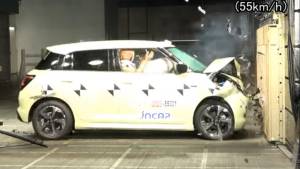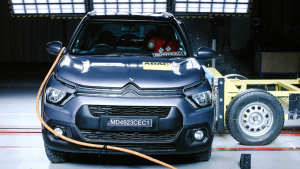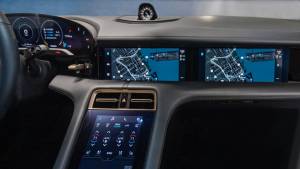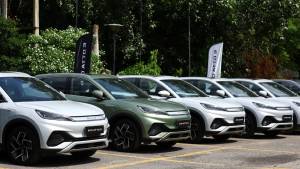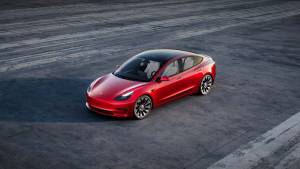Safety in India is still a sham
There has recently been a huge hue and cry over safety in cars available in India, or actually the lack of it. A massive spotlight has been thrown on that subject by the NCAP (New Car Assessment Program), a global body that is widely accepted as the gold standard on safety assessment. NCAP hands out stars for ratings and each of the five stars is highly sought out by European manufacturers. Over the years manufacturers in Europe have gotten even more diligent when it comes to safety and these days several cars sold in Europe possess 4 stars or the full 5 star rating. NCAP publishes safety ratings for adult protection, child protection and pedestrian protection and then gives an overall rating as well. Their test methods are precise, rigorous, stringent and expansive and their ratings are iron clad. To their credit, their tests are documented with images and video that is available to the public to view and verify for themselves.
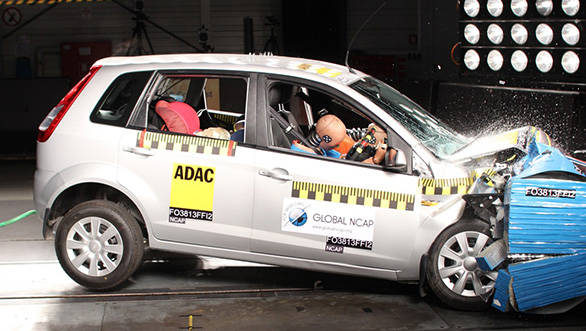 The Ford crash test being done
The Ford crash test being done
So imagine the uproar from the manufacturers whose cars failed the tests. The Tata Nano, Maruti Suzuki Alto, the Hyundai i10, the Ford Figo and the Volkswagen Polo all failed the crash test miserably. Without airbags, cars such as the Nano and the Alto were quoted as having unstable structures which in the event of a crash had a very high chance of leading to death. These manufacturers cried foul claiming that the tests were conducted improperly and that their cars were safe by Indian test standards.
I definitely support their claims, by Indian test standards their cars are safe. But since when did India have any safety standards at all? What are the safety standards for automobiles, as far as I know there is little or no crash testing done in India. If I am wrong I'd like to know where are the findings published for us to scrutinise.
Safety standards in Indian cars are a laughing to death matter because over 20 per cent of all cars sold in India lack the absolute basics. NCAP also proved very clearly what we have been saying for years, Indian cars don't even offer a structure that is capable of keeping its occupants safe. Airbags, ABS and any other safety implement is all secondary.
Manufacturers cried foul of the speeds at which these tests were conducted, 64kmph was way above the global United Nations prescribed 56kmph limit. Seriously, a 10kmph variation in speed is your guarantee from those death traps. Either way the cars failed even those tests at the NCAP.
The question we should all be asking is why are our cars this unsafe, why are we 20 years behind global cars in terms of safety? The answer to that lies not with the manufacturers but with the Indian populace. To the average Indian safety is a non issue, its just not critical. At a very basic level we are an unsafe people, we walk freely in the streets even when there are pavements which are then occupied by hawkers of all sorts. We ride our motorcycles without helmets even though it is the law. We travel at all speeds in our cars and which are usually way over the speed limit. Even the government has little or no idea how to frame speeding regulations and how to enforce driving sense. Our licensing systems are worse than rubbish, my unborn baby could get a license to drive in this country! What's the big fuss then about the cars we drive being unsafe?
I recollect a conversation I had with the head of India's largest car manufacturer several years ago. At a particular launch of a small car I asked him a question. When will your company begin offering ABS and airbags in the cars they made? His reply was simple, when the consumer wants it they would implement it but right now the consumer does not want it so why offer it. Nearly a decade later that is still the stance maintained not just by that one manufacturer but almost every other manufacturer in India. Safety in our cars is a function of consumer wanting to pay an additional amount of money for it. Safety is not a progressive move that our manufacturers will undertake. It's a reactionary move if enough people out there want ABS and airbags to justify the investment then and only then will our cars have basic passive safety elements.
Another most common fallback I've heard is that airbags and ABS are not mandated by Indian law hence their absence in our cars. Now is that a responsible attitude where safety is concerned? The least responsible action to follow would be to offer an option. Let the consumer decide his fate but at least give him the right to refuse.
One manufacturer in light of the recent safety issues came out saying they have now implemented airbags in all their models. The need to do this came not from their car just failing the tests but fear of the social backlash the failed tests would have on one of Europe's premier manufacturers. If they were so concerned about safety shouldn't they have had airbags on all their models right from the day they set shop in India?
Safety in India is still a sham!
Starts Rs 7.75 Lakhs
1194cc
Automatic
96
119
16 Kmpl
Starts Rs 6.17 Lakhs
999cc
Automatic
76
175
16.47 Kmpl
Related Stories
Top Stories
Latest Videos
Most Popular
- Budget Sportbike Showdown: Kawasaki Ninja 500 vs Aprilia RS 457 vs Yamaha YZF-R3
- Mumbai-Pune Expressway speed restrictions updated
- 2014 Triumph Daytona 675 vs 2024 Kawasaki ZX6R - A Decade of Evolution in Supersport Motorcycles
- 2024 Hyundai Creta vs Toyota Urban Cruiser Hyryder vs Skoda Kushaq comparison review - the hype is real?
- Nissan Magnite EZ-Shift review - is the AMT any good?
